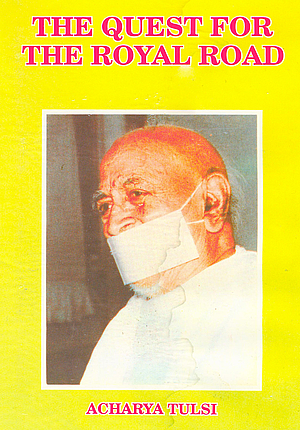In the last millennium, the study of the scriptures has been inspired only by faith. They have not been studied from the historical point of view. In the past century, it would have been very rarely discussed as to who wrote a particular scripture, when it was written, where it was written, etc. So far, even the authenticity or otherwise is also a matter of traditional belief.
For the enlightened thinkers of today, who study these treaties from historical point of view, the criteria of determining whether they are authentic or not is not very useful. Therefore, this whole subject deserves to be considered very seriously. Before deciding whether the scriptures are accurate or inaccurate, we must refine our ideas and beliefs about them. In my view, our ideas with regard to the scriptures are not quite realistic.
The test of authenticity with regard to the exposition of the scriptures may be guided by our own experience or realisation, which can be the result of experiments. Today, instead of experiment, more importance is given to their scriptural nature. A large number of subjects of the scriptures are unknown to us. And the subjects that are not known to us can be accepted as pre-conceived notions.
The following point need to be kept in mind while deciding whether the scriptures are authentic or not:
- Deciding on the period and authorship of the scriptures on the basis of historical facts.
- Study of the growth of ideas and thought-processes dealt within the scriptures chronolo-gically.
- Deciding about the mutual transgressions. If this is done, the above-mentioned problem would be automatically solved.
In his statement, "Can the scriptures be challenged?" Acharya Amarmuni has challenged the people who hold orthodox views. I consider this an admirable stand. In this age of science and research, continuing to hold ideas resulting from ignorance does not mean expressing faith in the scriptures, but exhibiting ignorance about them. However, I take a different stand with regard to some of the points mentioned in that statement. With my heart-felt respect and regard for the Acharya, I would like to state my differences with him.
- I am not in favour of making selection of the Agamas right now. Whether such selections have been made in earlier times are, in my view, are not authentic in the context of historical research. It is difficult to say what would remain the balance after the selection today in the historical context. Hence, I consider prolonged research and hard work is necessary to carry out this task.
- Whatever decision we take with regard to the Agamas, should not be individually taken. It would be good if the representatives of the entire Jain community get together and take some decision and make it public after it has found acceptance by all sects. If that is not possible, at least the decision accepted by our own sect should be brought out in public.
For the present, the subject under discussion has been reserved for the purpose of research and so, the idea can be only briefly stated.
 Acharya Tulsi
Acharya Tulsi
